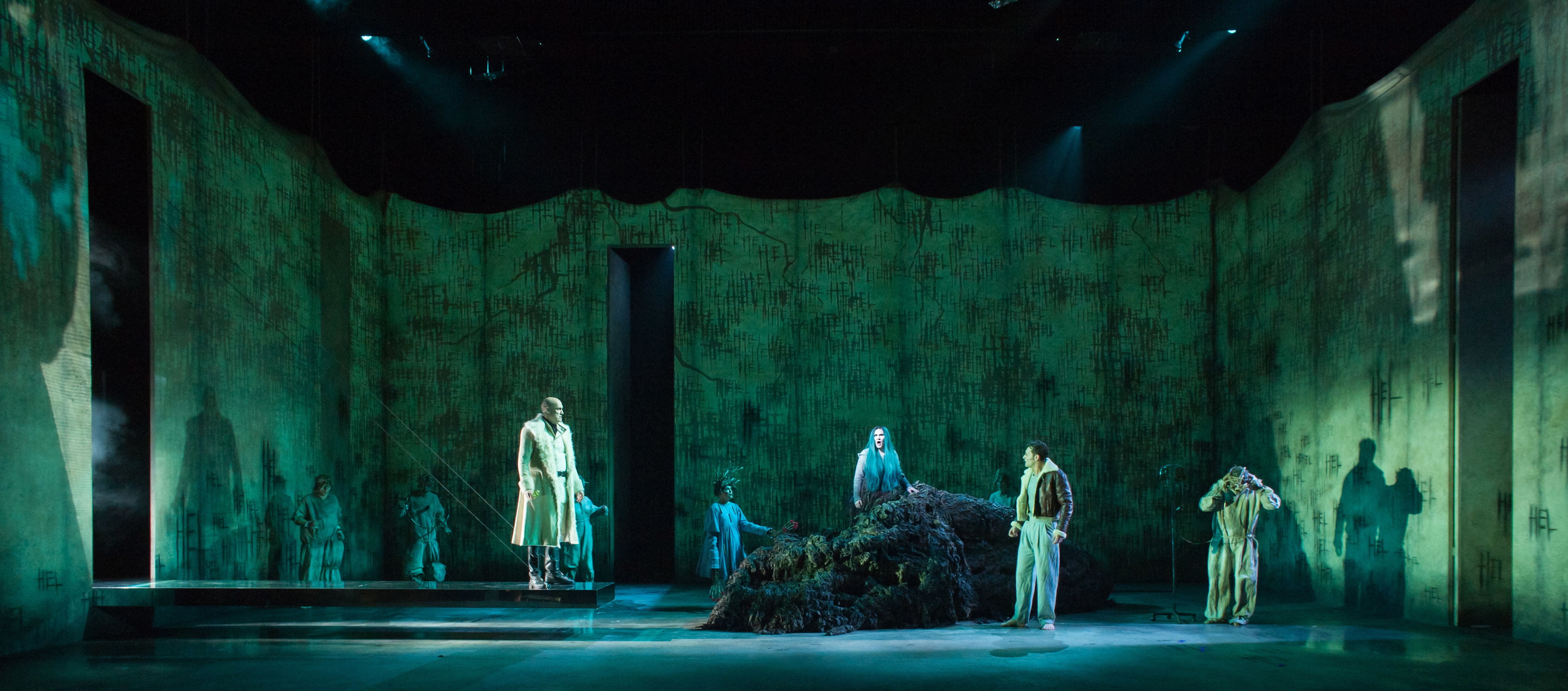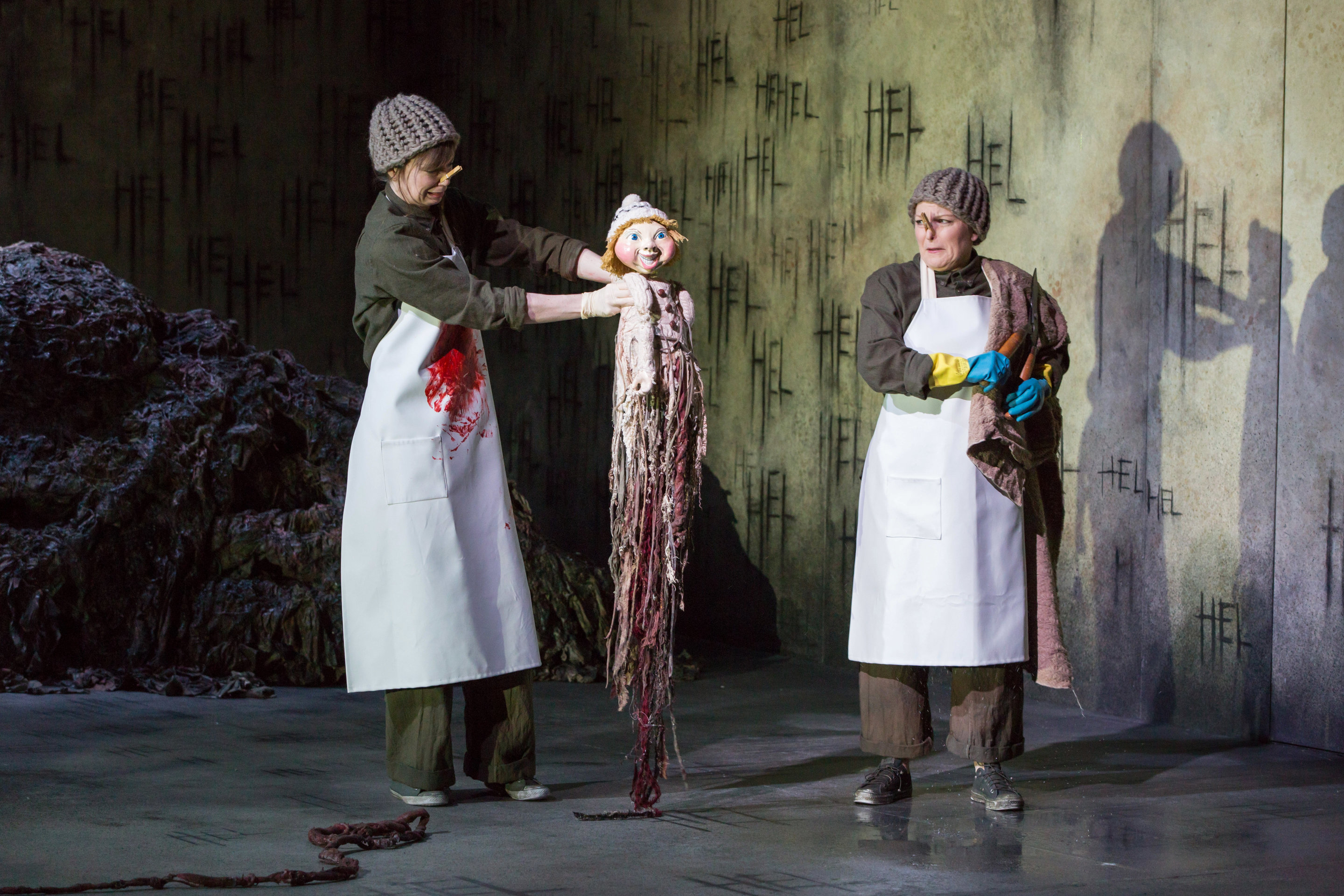Hel, heroine of Gavin Higgins and Francesca Simon’s new opera, is the illegitimate daughter of the Norse god Loki. In many ways The Monstrous Child itself feels like a bastard offspring, born – moody, mouthy and full of fragile rage – to Wagner’s Ring Cycle and Skins or possibly 13 Reasons Why.
Hel has many more than 13 reasons for her anger. Rejected by her parents, tormented by the gods and banished to rule over the dead for all eternity, she’s determined to escape and find a way back to her crush Baldr – an aim complicated by the fact that she’s half-girl, half-corpse, dragging half a ton of putrefying flesh around with her
YA stories continue to hold sway with publishers and at the cinema, so it was only a matter of time before someone wrote a YA opera. It’s hard to imagine anyone better qualified than Simon, whose award-winning works (including the Horrid Henry series) are fixtures of the children’s charts, and whose novel provided the starting point for the project.  The transition to stage is a smooth one. Simon’s crisp, unfussy libretto gives her characters plenty of reasons to sing, and Higgins’ score obliges not just with some deft vocal writing but orchestral music that conjures a distinctive world for Hel to wrap herself up in.
The transition to stage is a smooth one. Simon’s crisp, unfussy libretto gives her characters plenty of reasons to sing, and Higgins’ score obliges not just with some deft vocal writing but orchestral music that conjures a distinctive world for Hel to wrap herself up in.
There’s a wonderful weight to scoring dominated by low woodwind and brass – bass and contrabass clarinet, trombone, horn – musical bulk that pulls against Hel’s vaulting, contrarian vocal lines, her spiky sass and energy, even as her own body drags her back. Through this dense fug of groaning, straining sounds come glimmers of light. A scene in Asgard, home to the gods, glints icy in strings, while the climactic final scene (no spoilers here) brings a warmer, sweeter light. Jessica Cottis directs members of the Aurora Orchestra with incisive clarity, deploying her forces strategically, always mindful of the singers who must project Simon’s text without the help of surtitles. It’s no small praise to say that you rarely lose a word.
Timothy Sheader of Regent’s Park’s Open Air Theatre, directs an efficient production that relies heavily on Paul Wills’ designs. Video projections are used sparingly, and most of the focus falls on the puppets that play not only Hel herself and her snake and wolf brothers, but also her giantess mother Angrboda (Rosie Aldridge). An early scene that sees Angrboda birthing her puppet-children through an over-sized, over-bright vagina comes close to eclipsing all that follows in its gleeful anatomical grotesquery.  There are memorable cameos from Lucy Schaufer’s jobsworth troll Modgud (pictured above on the right with Laura Calder) , Dan Shelvey’s matinee idol Baldr (singing lines shaped as elegantly as the creases in his immaculate trousers) and Graeme Broadbent’s Odin, his hauteur horribly broken by the death of his son. But it’s Marta Fontanals-Simmons as Hel who is the dramatic pulse of the show. Immobilised within an enormous, overspilling mound of rotten flesh she must do all with face and voice, and does. A love-duet manqué with Baldr wriggles with misplaced passion, and her final scene tempers teenage overstatement with a welcome new simplicity, trading backbiting quips for tentative softness. The young British-Spanish mezzo-soprano feels like a major talent in the making; let’s hope her house debut is soon followed up.
There are memorable cameos from Lucy Schaufer’s jobsworth troll Modgud (pictured above on the right with Laura Calder) , Dan Shelvey’s matinee idol Baldr (singing lines shaped as elegantly as the creases in his immaculate trousers) and Graeme Broadbent’s Odin, his hauteur horribly broken by the death of his son. But it’s Marta Fontanals-Simmons as Hel who is the dramatic pulse of the show. Immobilised within an enormous, overspilling mound of rotten flesh she must do all with face and voice, and does. A love-duet manqué with Baldr wriggles with misplaced passion, and her final scene tempers teenage overstatement with a welcome new simplicity, trading backbiting quips for tentative softness. The young British-Spanish mezzo-soprano feels like a major talent in the making; let’s hope her house debut is soon followed up.
The Monstrous Child is a new opera that’s well-crafted and lovingly staged. If Act I struggles slightly to get beyond witty snark and repartee, then Act II finds its feet, propelling us into a beautifully unexpected conclusion. Will it appeal to teenagers? You’d have to ask them. There were precious few in evidence on press night; let’s hope the remainder of the run allows the show the chance to find its target audience.














Add comment